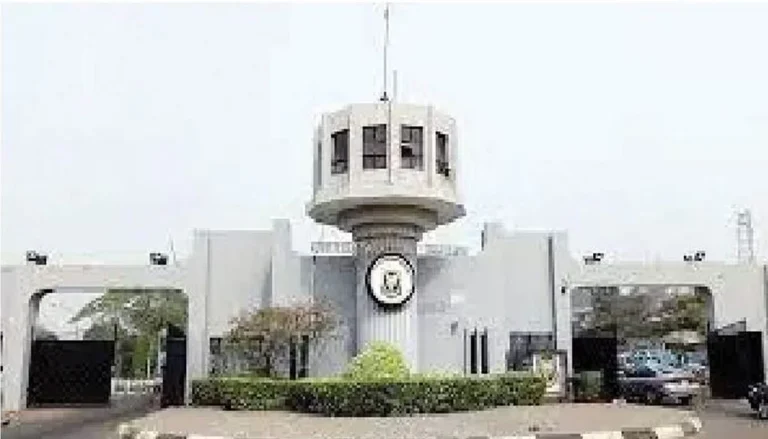
There is possibility of disruptions in flight operations as well as fuel and electricity supplies across Nigeria over the planned nationwide strike by the Organised Labour.
The Organised Labour, which is demanding N494,000 as new national minimum wage, has started mobilising its affiliate bodies and members across the country for the strike, reports Daily Trust.
Workers in the aviation and electricity sectors as well as their counterparts in the oil and gas sector have been mobilised by their respective associations to join the strike billed to commence tomorrow.
The Nigeria Labour Congress (NLC) and the Trade Union Congress (TUC) had, on Friday, declared an indefinite strike over the federal government’s refusal to increase the minimum wage above N60,000.
The General Secretary of the National Union of Air Transport Employees (NUATE), Ocheme Aba, confirmed to Daily Trust yesterday that the union would participate in the strike.
He said: “Definitely, we would be part of it (the strike) but exactly how it would happen, I cannot say. We’re meeting tomorrow (today), but definitely we would be part of it.”
Also, the Deputy General Secretary of the Air Transport Services Senior Staff Association of Nigeria (ATSSSAN), Francis Akinjole, said the association will meet today to decide on the appropriate action to take.
The General Secretary of the Nigeria Union of Petroleum and Natural Gas Workers (NUPENG), Afolabi Olawale, in a statement yesterday, said the union was committed to ensuring total compliance with the directive.
Afolabi said the union was concerned and disturbed with the alleged insensitive attitude of the federal government “to the very critical issue of negotiating a new minimum wage for Nigerian workers.
“This is in view of the various socio- economic policies of this administration that have impoverished the working people of this country.
“Leaders of our great union at all levels, from the units, zones and branches, should immediately put all processes in place to ensure total compliance with this directive”, he said.
In a chat with one of our correspondents yesterday, the General Secretary of the Petroleum and Natural Gas Senior Staff Association of Nigeria (PENGASSAN), Lumumba Okugbawa, also said the association will join the strike.
Similarly, the Acting General Secretary of the National Union of Electricity Employees (NUEE), Dominic Igwebike, in a statement issued yesterday said the union was mobilising its members for the strike.
He said aside the inconclusive negotiations on the minimum wage and electricity tariff hike, the apartheid categorisation of Nigeria’s electricity consumers into bands was another reason for the decision to embark on the strike.
“Given the above, all national, state, and chapter executives are requested to start the mobilisation of our members in total compliance with this directive to ensure the government does the right thing as stated above. The withdrawal of services becomes effective on Sunday, 2nd June by 12.00 midnight,” he said.
NLC, TUC mobilise members in states
The NLC and the TUC yesterday began to mobilise their members across the 36 states for the planned industrial action.
In Bauchi State, the acting NLC Chairman, Ibrahim Maikudi, while addressing journalists after the State Executive Council meeting of the body in Bauchi town yesterday, said members were already being mobiliseed for the action.
“We have prepared for the modalities on how to implement the strike action coming up on Monday, Insha Allah,” he said.
In Plateau, the Chairman of the NLC, Eugene Manji and his TUC counterpart, Kenneth Shammah, in separate interviews with our correspondent, said they were prepared for the strike.
The Borno State’s chairman of the NLC, Yusuf Inuwa, said: “The Borno State NLC and TUC are ready for indefinite strike that will commence on Monday, Insha Allah, and then tomorrow (today), we’re having administrative council meeting of the two unions.”
The chairman of the NLC in Kano State, Kabiru Ado, said: “We would be meeting by 4.00pm on Sunday (today) to finalise our preparation for the strike. We’re very loyal to the national executive and their directives would be carried out”.
In Anambra State, the NLC Chairman, Humphrey Nwafor, also confirmed to our correspondent that his members had been mobmobilised for the strike.
Shelve action; N494,000 wage will cost N9.5trn – FG
At an emergency briefing in Abuja last night, the Minister of Information and National Orientation, Mohammed Idris, pleaded with the NLC and the TUC to shelve the planned strike and return to the negotiation table in the interest of the nation.
He said the sum of N494,000 national minimum wage being sought by the labour would “cumulatively amount to the sum of N9.5 trillion bill to the Federal Government of Nigeria.
“Indefinite strike action is not the solution. It will rather complicate the situation. Our appeal is that they should shelve that strike, rethink the strike; because it is not in the interest of Nigerians”, he stated.
According to him, it is important for Nigerians to understand that while the government is desirous of ample remuneration for workers, President Bola Ahmed Tinubu will not encourage any action that could lead to massive job losses.
“Whereas the labour is keen on the take-home pay of about 1.2 million workers, the federal government is concerned with the welfare of 200 million plus Nigerians. This is because, the federal government’s guiding principle is: affordability, sustainability and the overall health of the nation’s economy”, he said.
The minister called on all parties to embrace “reasonable and realistic dialogue” that would result in the proper resolution of the impasse.
The minister recalled that apart from the minimum wage, President Tinubu had floated 12 palliatives for Nigerians, including N125 billion Conditional Grant and Financial Inclusion to micro, small and medium enterprises (MSMEs); N100 billion for the procurement of CNG-fueled buses and CNG conversion kits; N25,000 each to be shared to 15 million households for three months and N185 billion palliatives (loans to states) to cushion the effects of fuel subsidy removal.
He listed other palliatives as N200 billion to support the cultivation of 500,000 hectares of land to boost food production; the release of 42,000 metric tons of grains from strategic reserves; the purchase and onward distribution of 60,000 metric tons of rice from rice millers and the recent salary increase of 25-35% on all consolidated salary structures for federal workers.
Why we can’t pay N494,000
– Manufacturers
The Director-General of the Manufacturers’ Association of Nigeria (MAN), Segun Ajayi-Kadri, yesterday said the association could not meet the labour’s demand of N494,000.
He said the government and the private sector faced significant constraints in fulfilling the proposed living wage request sequel to various factors associated with present economic challenges.
Ajayi-Kadri, who disclosed this when he appeared on Channels TV, stressed that the private sector, for example, is dealing with inflation, and that this would make it impossible to pay such an amount, saying OPS has already accepted the government’s proposal of N60,000.
“All of us in the tripartite – the government, the labour and the private sector – we all knew that we were operating in a very difficult environment. The government itself realized that it had limited capacity to pay.
“The private sector is constrained by microeconomic, infrastructure and security challenges. So, we are also constrained to pay.
“Incidentally, the organized private sector and government have offered N60,000 as the minimum wage and I think it is very important for us to understand that what we are talking about is the minimum wage. That is what some people have called the walk-in wage. That is the amount we will pay the least workers in the country. It’s the minimum wage we are negotiating, not a living wage,” he said.








